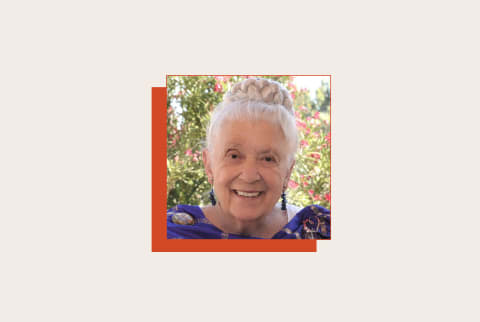Advertisement
I'm A 102-Year-Old MD: This Is My #1 Secret To Healthy Aging


On a fundamental level, we’re all connected. It’s easy to forget this and see ourselves as separate beings. After all, I’m me, wrapped in my own skin, and there you are, wrapped in yours. Yet we are social creatures, and we depend on one another to survive. No matter how hard we may try to separate ourselves, we are part of a community, for better or worse.
Yet a true sense of community seems rare in our modern age. Even before the pandemic, many media reports were noting that we are experiencing a crisis of loneliness. Loneliness has been identified as a problem in numerous countries and across a range of demographics.
This sense of disconnection wreaks havoc on the body. One study at Brigham Young University showed that feeling lonely has the same effect on longevity as smoking fifteen cigarettes a day. Poor social relationships have been associated with a 29% increase in the risk of heart disease and a 32% increase in risk of stroke.
At the same time, the data show that positive social connections help us thrive. The author Ashton Applewhite has noted that social connection is a main indicator of happy and healthy aging. She also recommends multigenerational friendships, an idea that is echoed by numerous studies showing the positive effects being around small children has on older people facing questions of purpose.1
While marriage in general is associated with decreased risk of cardiovascular disease, troubled marriages are associated with increased risk2. According to the Harvard Study of Adult Development, the quality of our relationships at age fifty is the greatest predictor of our health and well-being at age eighty.
Life comes from our connection, is supported by our connection, and creates connection.
We are happiest and healthiest when we are contributing to and drawing from our collective life force. This idea is the basis of my fourth secret of longevity: You are never truly alone. Connecting with community amplifies our individual life force by realigning it with the collective life force.
Each of us is responsible for creating a supportive network for ourselves. In doing so, we contribute to the overall network that supports others. Our giving doesn’t even have to be altruistic because it’s self-serving.
The more we have, the more we spend time apart.
I’ve seen thriving communities all over this globe. I’ve noticed the greatest sense of community joy in groups of people who are working together, even—or perhaps especially—in the face of great struggles.
We are social beings; we are meant to be together. This is how we thrive. Though many of us know this on an intellectual level, it’s becoming harder and harder to put into practice.
The United States (as well as much of the world) is splitting down ideological lines. Family members are unable to connect with one another, opting to spend holidays and celebratory events in their separate corners. More and more marriages end in divorce. Our houses and yards get bigger as we retreat into our individual electronic devices. The more we have, the more we spend time apart. Even if we want to connect, at least theoretically, it feels as if it’s too hard to get our needs met. Perhaps we’ve even forgotten how to do so.
As I watch this happen around me, I can’t help but wonder: If we enjoy connection and know it’s good for us, why do we avoid it?
Practice: Weaving together the fabric of life
- Think about your friends, coworkers, family, and neighbors—the people you see most often in life. Let yourself wonder: In what ways is my community working? In what ways is it not working? Do you feel a sense of connection? Do you rely on one another?
- Start remembering times when you have felt truly supported by your community. This could be something simple such as being helped with a household task, being given a friendly shoulder to cry on, being given a ride to the mechanic, and so on. Let yourself remember how it felt.
- Then allow yourself to recall times in the past when you offered your time or support to others. Think of any small action that brought someone joy. Remember how it felt to see their smile.
- Next, ask yourself: What relationships need my love and tending? You can think of your love as concentric circles that radiate out from your heart. Whom can you call or connect with? Whom can you forgive? Which relationships deserve better boundaries? How can you find the friend within everyone—even someone you don’t like? How can you enrich your relationships and weave the fabric of life together more tightly?
Adapted from an excerpt of The Well-Lived Life: A 102-Year-Old Doctor's Six Secrets to Health and Happiness at Every Age (2023) by Gladys McGarey M.D. with permission from the publisher.